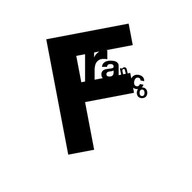It was just me and Mama after Daddy left. That’s when she met God in a fever dream. I was thirteen and nursed her back to health with nettle tea and cool rags, the way she’d nursed me before I’d become a woman.
Something changed between us once the blood came. Suddenly she wanted to tell me all of her secrets. How she’d chased boys her whole life. How Daddy had been the first one to chase her back. Catch her. Capture her. Then ran away from her after she’d given him everything: years of her life, her ambitions, her body, her family’s money. He left her our house. And me. But I could tell she wasn’t so sure if I was a blessing or a curse.
She’d brought men home in the years after Daddy left. None of them laid a finger on me, but I got a distinct feeling about each one when I’d meet them. A shiny-faced banker was a closet alcoholic. A short, hairy UPS delivery man was head of a burglary ring, casing houses on his stops. The man with the exquisite velvet blazer did not love my mother or any woman at all. I sabotaged every relationship just before it got serious, engaging in screaming and crying fits that would cause every man to run. Or if that didn’t work, insinuations over the dinner table that they were a little too fond of me for comfort, to see which ones would blush in embarrassment, which in anger.
My mother knew what I did, and she let me. Now we were all we had.
She sat straight up from the dream, and said, with perspiration beaded on her upper lip, You must guard your heart.
She reached for my hand to pull me closer. Above all things, she said, squeezing my hand tighter.
Her words seemed familiar, as though they’d been snippets of dialogue in some long-forgotten dream of my own.
I will, Mama.
You’re too young to guard it, like I was when I met your daddy. I need to do it for you.
Whatever you need, Mama. Just tell me what to do.
You need to give me your heart. It’s what the Lord wants. He spoke to me. In my dream.
You have my heart. You’re my mother.
Your real heart. It needs to be kept from harm.
But how?
You won’t feel a thing, I promise.
And because she was my mother, I believed her.
Three days later, she put me under with an herbal tonic and replaced my heart with a pomegranate as I slept. Her hands were stained with juice and blood for days.
Your heart is safe now, she said when I woke up, groggy and sore.
It took some getting used to, this substitute heart. It was lighter, for one thing; my circulation less efficient. My lips were tinged blue, and everywhere you could easily see the river of veins through my skin. I smelled sweet and the inside of my mouth was a startling pink, like the hydrangea that bloomed by our front door. I spoke softly so that people had to lean in to hear.
Mama cleaned houses and made tinctures, and I worked as a seamstress, mending pants and taking in dresses. All under the table. All to survive. No one bothered us, even on our monthly trips into town for groceries and necessities. They’d all heard stories. Told stories.
Being mysterious was lonely, but exhilarating too.
Every so often I would cough on a pomegranate aril caught in my throat. When it finally dislodged itself into my mouth, I’d bite down on the flesh, a tiny explosion of juice between my teeth, still sweet, and I’d swallow the skin, like Mama told me to do.
I drank pomegranate juice with every meal and ate steaks to keep my iron up.
I met him on our first trip to the butcher. He was assisting behind the counter.
When he smiled at me, my mouth filled with a sudden explosion of seeds, and I’d had to chew and swallow them all before I could smile back, forgetting my teeth would be stained as rosy as if I’d eaten my favorite: filet mignon, rare.
He didn’t seem to mind. He didn’t look away until I did. In his eyes, I saw a word I recognized: hunger.
I watched his hands as he carefully, almost tenderly, wrapped our steaks in the heavy paper, expertly tying them with twine. My mother watched me as I watched him.
On the drive home, she said, reading my thoughts, That boy is trouble. Didn’t you see the storm in his eyes? The way I taught you?
I had, and I’d wanted to be swept up in it like nothing I’d wanted before.
I didn’t notice, I said, lying to her for the first time in years.
I knew that she knew, but she didn’t say a word, only pressed harder on the gas pedal to get us away from town and back home.
How do you tell someone your heart is a rotting fruit?
I told Mama about the brownish seeds I’d been coughing up. She said there was nothing to worry about, but I could see that she was anxious, the quick downturn of her eyes to avoid mine.
If she wouldn’t tell me the truth, I needed someone who would.
Instead of picking up my weekly pile of clothes at the dress shop, I parked the car on Main Street and walked into the butcher shop.
He was there at the slicer, focused and precise. He didn’t look at me until he was done, the machine turned off, and the safety turned on.
More already? he asked. That smile again.
I need something else. Do you have a lunch break?
Twelve-thirty.
Meet me at the split birch behind the abandoned dairy farm. You know it?
He nodded. I’ll bring sandwiches.
Could you bring me a steak?
Steak sandwich?
Just a steak. Medium rare. I’ll bring drinks.
Amanda Miska is a fiction writer and essayist, as well as Editor-in-Chief of Split Lip Magazine. Her work has appeared in jmww, Storychord, Black Heart Magazine, Five Quarterly, Pea River Journal, Atticus Review, the Prairie Schooner blog, Manifest Station, The Rumpus, and elsewhere. She lives and writes in Northern Virginia (although she will likely have moved to Philadelphia by the time this issue is released).













